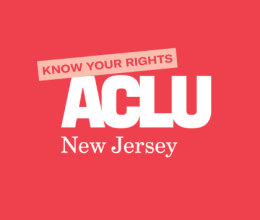
The ACLU-NJ this week submitted comments to the Judicial Conference on Jury Selection, calling for significant changes to root out racial bias in the jury selection process so it can be more inclusive and reflective of New Jersey communities.
The New Jersey Supreme Court called for the Conference in its decision in State v. Andujar, a case where the ACLU-NJ submitted a friend-of-the-court brief urging the Court to recognize the role implicit bias played when prosecutors ran a criminal background check on a Black potential juror to exclude him from a jury. In its opinion, the Court acknowledged the general harms of implicit bias in jury selection and established the Judicial Conference on Jury Selection to explore the nature of discrimination in the jury selection process.
The ACLU-NJ recommendations include, among others:
- Eliminate prohibition on people with convictions serving as jurors
- Provide fair compensation for jury service
- Review and expand source lists to broaden the jury pool
- Allow attorneys to conduct voir dire
- Reduce the number of peremptory challenges
- Improve standards for rooting out discrimination in the use of peremptory challenges
- Reform “for cause” challenge standards
- Provide effective bias training for judges and their staff
The ACLU-NJ's recommendations are intended to be viewed holistically in order to be most effective in addressing the underlying impacts of implicit bias. Implementing these recommendations individually or in part will reduce the likelihood of greater collective change.
The following statement can be attributed to ACLU-NJ Senior Staff Attorney Karen Thompson:
“We are grateful that New Jersey is beginning to address systemic racism and implicit bias in the current jury selection process by holding the Judicial Conference on Jury Selection. The ACLU-NJ is committed to two foundational principles at the heart of jury selection: the elimination of unconstitutional bias in selecting jurors and fair trials for all litigants. When racial bias infects what should be a fair process, large swaths of people are excluded from systems that are supposed to protect them. Juries can only speak with the voice and authority of the community if they truly and accurately reflect that community. We’re hopeful that New Jersey can join other states around the country who have already made changes to their jury selection process in the name of equity and inclusion.”
Read the ACLU-NJ’s full recommendations here.

